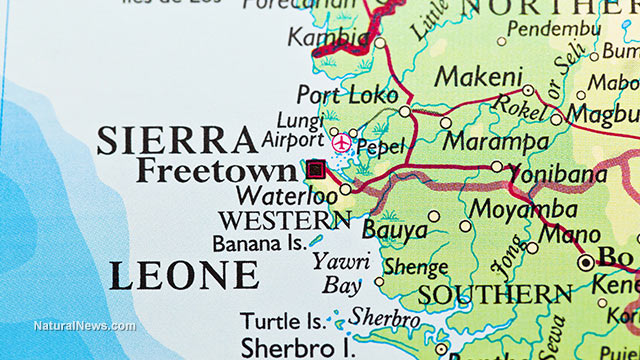| Online: | |
| Visits: | |
| Stories: |

| Story Views | |
| Now: | |
| Last Hour: | |
| Last 24 Hours: | |
| Total: | |
IV Ozone Ebola Cure Documented By Dr. Rowen, Then Systematically Suppressed By Government

C.L. Doherty
(NaturalNews) Mainstream media’s attention in America to the Ebola crisis in West Africa has long since wandered off, but that doesn’t make the crisis any less real for the people living there. As of December 7, the U.S. Centers for Disease Control (CDC) is tracking a total of 17,908 cases of Ebola in Guinea, Liberia and Sierra Leone. 6,373 people have died from contracting the virus, according to the report. Other countries affected by the spread of Ebola include Mali, Nigeria, Senegal, Spain and the United States, though the outbreaks in these nations are minimal in comparison.
Sierra Leone currently has 7,897 cases, and 1,768 people have died there. The CDC’s Ebola treatment web page states that currently “no FDA-approved vaccine or medicine (e.g., antiviral drug) is available for Ebola.” That is to say, no cure has been found in conventional, corporate medicine. The CDC’s best answer is to hope that the virus is detected early, then provide intravenous fluids and electrolyte salts, maintain oxygen levels and blood pressure, and treat other infections when they occur. In layman’s terms, keep them watered, fed and comfortable and hope for the best.
Ebola continues to spread in West Africa as conventional medicine fails to stem the tide
The situation in West Africa, and especially Sierra Leone, is getting worse. According to a recent report, the eastern district of Kano has been put on a two-week lockdown due to a surge of infections discovered by healthcare workers there. The report, published by Al Jazeera and citing the World Health Organization (WHO), also states that Sierra Leone has now surpassed Liberia as the country most affected by the deadly virus. “[T]he WHO said on Wednesday that it had found bodies piled up at the only hospital in Kono, a district of about 350,000 people bordering Guinea,” according to the report.
With a scenario this bleak, it would seem that any possible solution to the 2014 Ebola outbreak would be under consideration by health authorities in these countries, the WHO, the CDC and other relevant medical authorities. But that is not the case.



